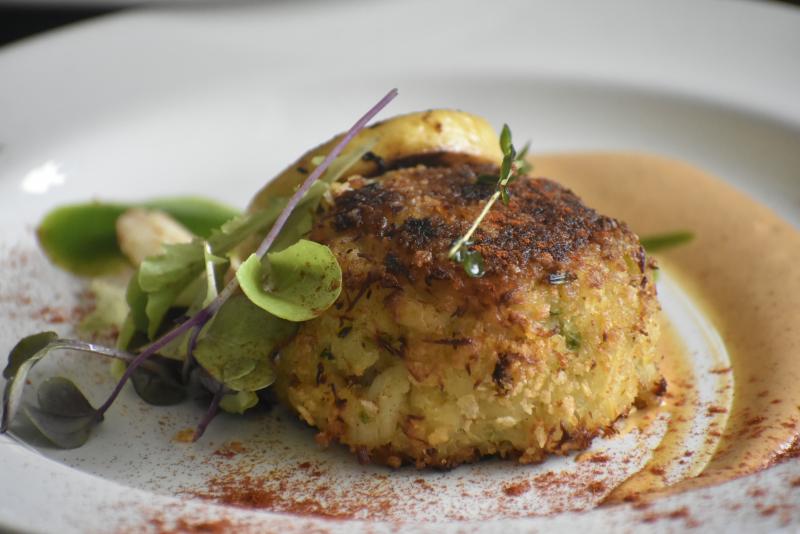The Sustainable Fisheries Partnership (SFP) and more than 25 major buyers, including retailers and seafood companies, have jointly called on key shrimp producing countries in Asia to tackle the issue of new diseases in their farms.
In a letter sent to the governments of China, India, Indonesia, Thailand, and Vietnam, SFP said increased actions need to be taken immediately in order to protect shrimp farms from the outbreak and emergence of new diseases.
Other companies and trade groups have signing the letter include AquaStar; Beaver Street Fisheries; Chicken of the Sea; Fortune International; HighLiner Foods; Hilton Seafood UK; IDH the Sustainable Trade Initiative; Labeyrie Fine Foods; Lyons Seafoods; Marks and Spencer; Sainsbury’s; Seafresh Group; Sunnyvale Seafood; Tesco; Co-op; The Fishin’ Company; Waitrose & Partners; and the UK Seafood Industry Alliance.
“Governments need to take action now to stop disease outbreaks in shrimp farms,” SFP Aquaculture Director Anton Immink said in a press release. “Disease disrupts the reliability of supply chains, threatens seafood sustainability and jobs, and continually costs the industry billions of dollars each year.”
In 2012 and 2013, diseases on shrimp spread massively in several producing countries in Asia, disrupting supply chains and causing significant losses for the relevant economies.
The disease of early mortality syndrome (EMS) severely affected Thai shrimp farms in 2011, after causing significant damages in Vietnam following its outbreak in China in 2009. Thailand’s shrimp production fell by nearly half, to 250,000 metric tons (MT) in 2013 from 540,000 MT in 2012, according to Reuters.
To prevent it from happening again, the countries have been urged to act early to reduce any possible economic loss. The relevant countries have been urged to upgrade the objectives, scope, and approach of their health management programs to lower the impact of diseases on the shrimp farming sector.
The letter specifically expressed concern about decapod iridescent virus 1 (DIV1) and hepatopancreatic translucence virus (HPTV), which “present an immediate and urgent concern for the industry.”
DIV1, which has plagued shrimp farmers in China since 2014, may be rebounding in prevalance in Guangdong Province, an aquaculture production hub. The virus had been detected in a number of shrimp farms in the southern province of Guangdong, along the Pearl River Delta, as of February 2020. About a quarter of the shrimp farming operations in the province have been infected by the current outbreak, which previously struck stocks in China at the start of 2019, according to the South China Morning Post.
Huang Jie, the director general of the Network of Aquaculture Centres in Asia-Pacific (NACA), said it is likely the DIV1 has spread to Southeast Asia.
Shrimp Vet Lab’s Loc Tran also said the virus has been detected in imported blood worms from China, which are used to feed broodstock.
However, the Vietnamese Ministry of Agriculture and Rural Development said in May the virus has not been detected in Vietnam, though the country shares more than 1,400 kilometers of a land border with China, with busy cross-border trading of agriculture and fisheries products.
The Southeast Asian nation has been working to prevent illegal trading of shrimp broodstock, commercial shrimp products, and feeds from China that may spread DIV1 to the country, according to the ministry.
The Vietnamese Agriculture Ministry has called on the National Steering Committee against Smuggling, Trade Fraud, and Counterfeit Goods to take measures against the illegal cross-border trading of shrimp broodstock, commercial shrimp products, and feeds from China. The ministry also asked seven provinces that have borders with China to intensify checks against the illegal imports of shrimp and aquaculture feeds from China.
Last year, around 6,200 hectares of shrimp farms in Vietnam was lost due to the diseases such as acute hepatopancreatic necrosis disease (AHPND), whitespot syndrome virus (WSSV), and enterocytozoon hepatopenaei (EHP), according to Vietnamese state media reports.
In the letter, the companies and organizations also worried about the transmission of diseases from infected postlarvae to grow-out ponds globally. There were reports of unregulated imports of non-SPF (specific pathogen-free) broodstock in numerous countries to replace supplies from regular SPF sources, transport of which was disrupted because of the COVID-19 pandemic.
“These imports are in contravention of OIE [World Organization for Animal Health] and FAO [U.N. Food and Agriculture Organization] guidance on transboundary movement,” the letter said.
Photo courtesy of Ben Petcharapiracht/Shutterstock
The Link LonkAugust 10, 2020 at 08:50PM
https://ift.tt/3itCQi4
Asian shrimp producers urged to take action regarding new diseases in farms - SeafoodSource
https://ift.tt/3eNRKhS
shrimp

No comments:
Post a Comment